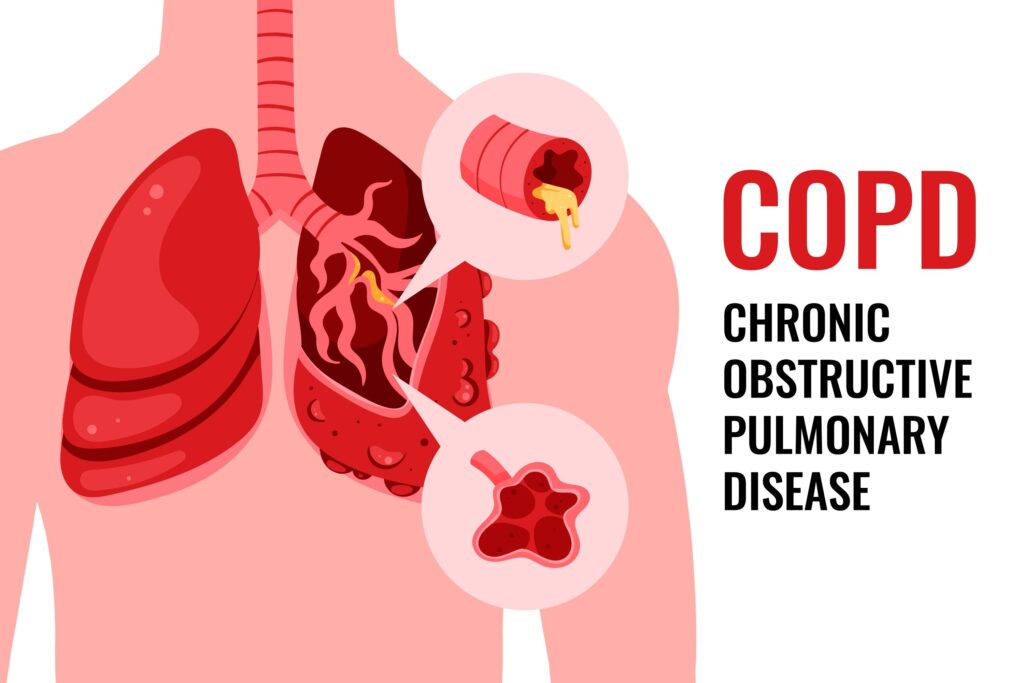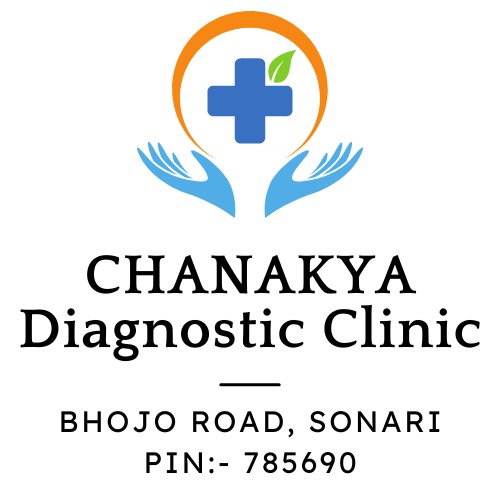Chronic Obstructive Pulmonary Disease

- Chronic Obstructive Pulmonary Disease (COPD) is a progressive lung disease characterized by persistent airflow limitation due to inflammation and damage to the airways and lung tissue. Common symptoms include chronic cough, sputum production, shortness of breath, and wheezing, which worsen over time and significantly impact quality of life.
- The primary risk factor for COPD is cigarette smoking, although exposure to environmental pollutants, occupational hazards, genetic factors, and respiratory infections also contribute to its development. COPD is typically diagnosed based on symptoms, lung function tests, and imaging studies.
- Management of COPD focuses on relieving symptoms, improving lung function, preventing disease progression, and reducing exacerbations. This often involves lifestyle modifications such as smoking cessation, pulmonary rehabilitation, and regular exercise, as well as medication therapy including bronchodilators, inhaled corticosteroids, and oral medications to reduce inflammation and improve airflow. In severe cases, supplemental oxygen therapy, non-invasive ventilation, or surgical interventions such as lung volume reduction surgery or lung transplantation may be considered. Close monitoring, patient education, and early intervention are essential components of COPD management to optimize outcomes and enhance quality of life for affected individuals.



